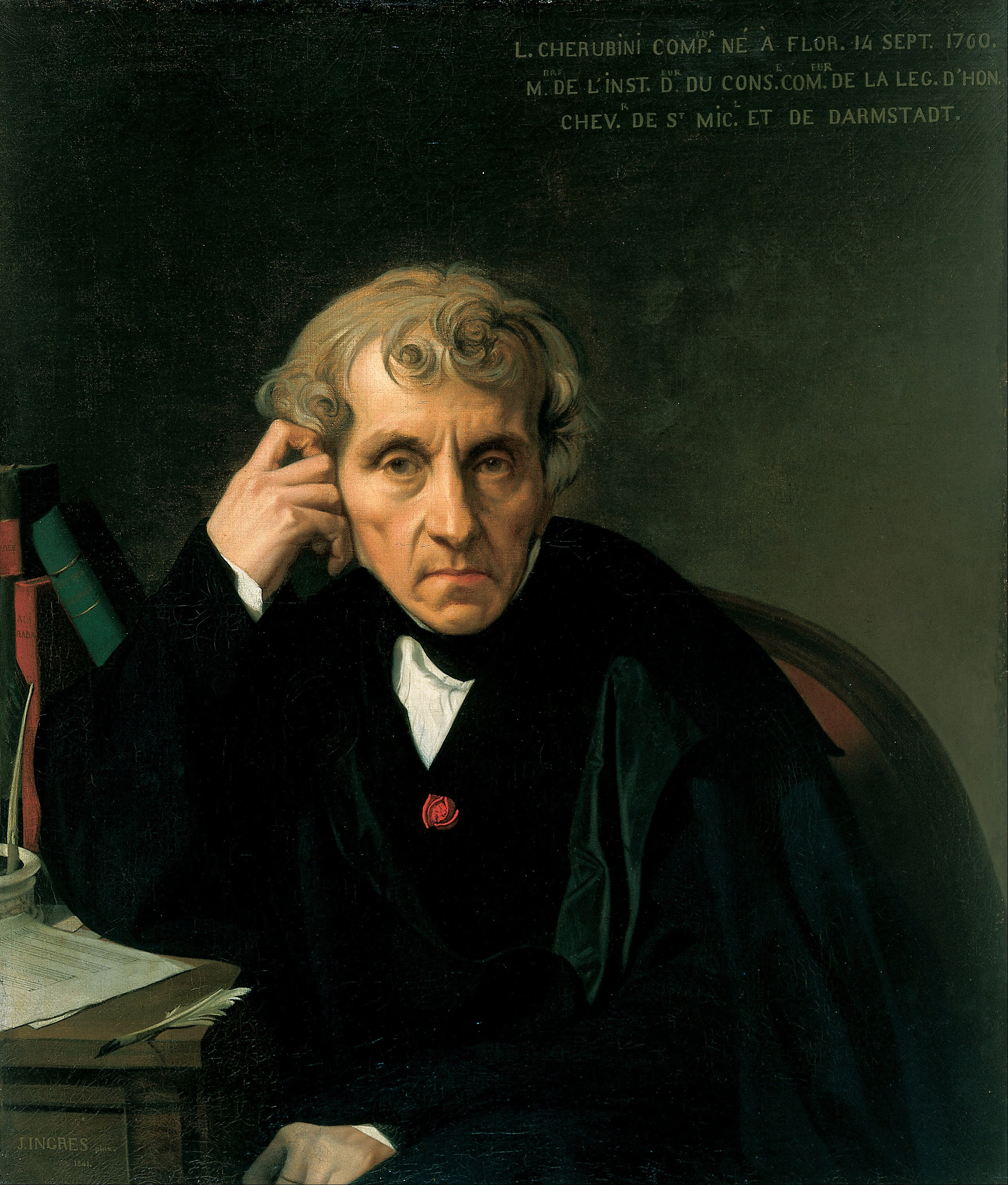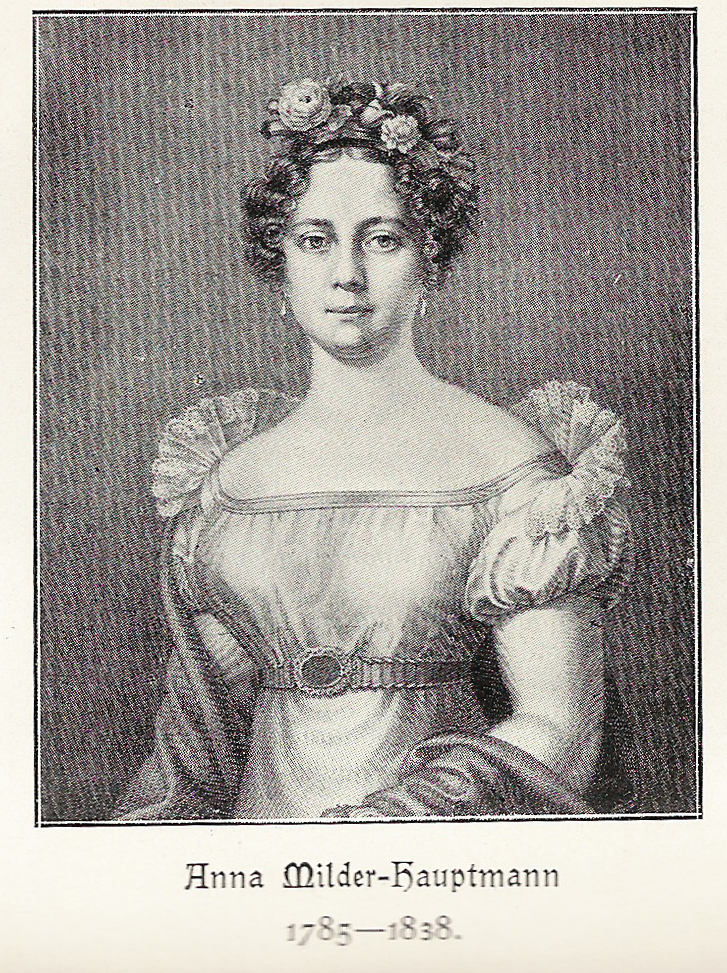|
Faniska
''Faniska'' is an opera eroica in three acts by Luigi Cherubini. The German libretto, by Joseph Sonnleithner, is based on the melodrama ''Les mines de Pologne'' (1803) by René-Charles Guilbert de Pixérécourt. Background In June 1805, Cherubini took up an invitation to travel to Vienna, where his works were highly appreciated. Here he put on a series of concerts and attended a performance of Ludwig van Beethoven, Beethoven's ''Fidelio''. He met Joseph Haydn, Haydn, a composer he particularly admired, and gave him a medal from the Conservatoire de Paris. Haydn presented Cherubini with the manuscript of his "Symphony No. 103 (Haydn), Drumroll Symphony". Cherubini also accepted a commission to write an opera for the Viennese stage and ''Faniska'' was the result. The plot has much in common with Cherubini's earlier rescue opera ''Lodoïska'' (1791), including its Polish setting. Performance history The opera was first performed at the Theater am Kärntnertor, Vienna, on 25 February ... [...More Info...] [...Related Items...] OR: [Wikipedia] [Google] [Baidu] |
Luigi Cherubini
Luigi Cherubini ( ; ; 8 or 14 SeptemberWillis, in Sadie (Ed.), p. 833 1760 – 15 March 1842) was an Italian Classical and Romantic composer. His most significant compositions are operas and sacred music. Beethoven regarded Cherubini as the greatest of his contemporaries. His operas were heavily praised and interpreted by Rossini. Early years Cherubini was born Maria Luigi Carlo Zenobio Salvatore Cherubini in Florence in 1760. There is uncertainty about his exact date of birth. Although 14 September is sometimes stated, evidence from baptismal records and Cherubini himself suggests the 8th is correct. Perhaps the strongest evidence is his first name, Maria, which is traditional for a child born on 8 September, the feast-day of the Nativity of the Virgin. His instruction in music began at the age of six with his father, Bartolomeo, '' maestro al cembalo'' ("Master of the harpsichord", in other words, ensemble leader from the harpsichord). Considered a child prodigy, Cherubini ... [...More Info...] [...Related Items...] OR: [Wikipedia] [Google] [Baidu] |
Joseph Sonnleithner
Joseph Ferdinand Sonnleithner (3 March 1766 – 25 December 1835) was an Austrian librettist, theater director, archivist and lawyer. He was the son of Christoph Sonnleithner, brother of Ignaz von Sonnleithner and uncle of Franz Grillparzer and Leopold von Sonnleithner. He was a personal friend and attorney of Ludwig van Beethoven, and he wrote numerous librettos, among them, Beethoven's stage opera ''Fidelio'', '' Faniska'' by Luigi Cherubini and ''Agnes Sorel'' by Adalbert Gyrowetz. Life Sonnleithner began working for the Viennese court in 1787, first at Joseph II's private office and later in the chancellery. From 1796 he published the ''Wiener Theater-Almanach'', and in 1802 he became partner in the Kunst und Industrie-Comptoir publishing house. For a short period from February to August 1804 he served as artistic director of the Theater an der Wien, and from 1804 to 1814 as secretary of court theaters in Vienna. He was also a leading figure in Viennese musical life in the fir ... [...More Info...] [...Related Items...] OR: [Wikipedia] [Google] [Baidu] |
Pauline Anna Milder-Hauptmann
Pauline Anna Milder-HauptmannShe was mostly called Anna Milder. Before her marriage, she was often referred to on playbills, reviews and correspondence as Mlle Milder, sometimes as Nanny Milder. After her marriage, many documents refer to her as Madame Milder. (13 December 1785 – 29 May 1838) was an operatic soprano. Biography Early life Milder was born in Constantinople where her father, Felix Milder from Salzburg, was employed by the Austrian ambassador Baron Herbert von Rathkeal as pastry chef; her mother was lady-in-waiting to the ambassador's wife. When Anna was five years old, the family left for Bucharest, where Felix worked as translator until they had to leave because of the Austro-Turkish War (1787–1791). After he had briefly worked for the ambassador again, the family returned to Bucharest, only to be forced to flee again when pestilence broke out there. After quarantine in Herrmannstadt, the family settled in Vienna. Here Anna, now aged 10, received her ... [...More Info...] [...Related Items...] OR: [Wikipedia] [Google] [Baidu] |
Soprano
A soprano () is a type of classical female singing voice and has the highest vocal range of all voice types. The soprano's vocal range (using scientific pitch notation) is from approximately middle C (C4) = 261 Hz to "high A" (A5) = 880 Hz in choral music, or to "soprano C" (C6, two octaves above middle C) = 1046 Hz or higher in operatic music. In four-part chorale style harmony, the soprano takes the highest part, which often encompasses the melody. The soprano voice type is generally divided into the coloratura, soubrette, lyric, spinto, and dramatic soprano. Etymology The word "soprano" comes from the Italian word '' sopra'' (above, over, on top of),"Soprano" '' |
Operas By Luigi Cherubini
Opera is a form of theatre in which music is a fundamental component and dramatic roles are taken by singers. Such a "work" (the literal translation of the Italian word "opera") is typically a collaboration between a composer and a librettist and incorporates a number of the performing arts, such as acting, scenery, costume, and sometimes dance or ballet. The performance is typically given in an opera house, accompanied by an orchestra or smaller musical ensemble, which since the early 19th century has been led by a conductor. Although musical theatre is closely related to opera, the two are considered to be distinct from one another. Opera is a key part of the Western classical music tradition. Originally understood as an entirely sung piece, in contrast to a play with songs, opera has come to include numerous genres, including some that include spoken dialogue such as '' Singspiel'' and '' Opéra comique''. In traditional number opera, singers employ two styles of ... [...More Info...] [...Related Items...] OR: [Wikipedia] [Google] [Baidu] |
Operas
Opera is a form of theatre in which music is a fundamental component and dramatic roles are taken by singers. Such a "work" (the literal translation of the Italian word "opera") is typically a collaboration between a composer and a librettist and incorporates a number of the performing arts, such as acting, scenery, costume, and sometimes dance or ballet. The performance is typically given in an opera house, accompanied by an orchestra or smaller musical ensemble, which since the early 19th century has been led by a conductor. Although musical theatre is closely related to opera, the two are considered to be distinct from one another. Opera is a key part of the Western classical music tradition. Originally understood as an entirely sung piece, in contrast to a play with songs, opera has come to include numerous genres, including some that include spoken dialogue such as ''Singspiel'' and ''Opéra comique''. In traditional number opera, singers employ two styles of sin ... [...More Info...] [...Related Items...] OR: [Wikipedia] [Google] [Baidu] |
Amanda Holden (writer)
Amanda Juliet Holden (; 19 January 1948 – 7 September 2021) was a British pianist, librettist, translator, editor and academic teacher. She is known for translating opera librettos to more contemporary English for the English National Opera, and for writing new librettos, especially in collaboration with Brett Dean. She contributed to encyclopedias such as the ''New Penguin Opera Guide''. Life and career Amanda Juliet Warren was born in London, the daughter of Sir Brian Warren and Dame Josephine Barnes. She was educated at Benenden School, and studied at Lady Margaret Hall, Oxford, with Egon Wellesz where she gained a Master of Arts (MA), at Guildhall School of Music and Drama and a MA at the American University, Washington, DC. She also had degrees from the Royal Academy of Music (ARCM and LRAM).Holden /Amanda, ''Who's Who'' (UK), 2012 She first worked as a freelance pianist and accompanist, teacher at the Guildhall School, and therapist from 1973 to 1986. Li ... [...More Info...] [...Related Items...] OR: [Wikipedia] [Google] [Baidu] |
Basil Deane
Samuel Basil Deane (27 May 1928 – 23 September 2006), known as Basil Deane, was a musicologist and academic. After studying at Queen's University Belfast and under Étienne Pasquier in Paris, he lectured at the universities of Glasgow, Melbourne and Nottingham, produced biographies of Roussel, Cherubini and Hoddinott, and co-presented several television programmes about music. He held a number of high-level academic; he was James Rossiter Hoyle Professor of Music at the University of Sheffield (1968–74), Professor of Music at the University of Manchester (1974–80), director of the Hong Kong Academy for Performing Arts (1983–87) and Peyton and Barber Professor of Music at the University of Birmingham (1987–92). Deane was also music director of the Arts Council (1980–83), during which time he prioritised funding for new touring groups, but oversaw the funding cuts which forced the D'Oyly Carte Opera Company to close. Life Deane was born on 27 May 1928 in Bangor, ... [...More Info...] [...Related Items...] OR: [Wikipedia] [Google] [Baidu] |
Starosta
The starosta or starost (Cyrillic: ''старост/а'', Latin: ''capitaneus'', german: link=no, Starost, Hauptmann) is a term of Slavic origin denoting a community elder whose role was to administer the assets of a clan or family estates. The Slavic root of starost translates as "senior". Since the Middle Ages, it has meant an official in a leadership position in a range of civic and social contexts throughout Central and Eastern Europe. In terms of a municipality, a ''starosta'' was historically a senior royal administrative official, equivalent to the County Sheriff or the outdated Seneschal, and analogous to a gubernator. In Poland, a ''starosta'' would administer crown territory or a delineated district called a '' starostwo''. In the early Middle Ages, the ''starosta'' could head a settled urban or rural community or other communities, such as a church starosta, or an ''artel'' starosta, etc. The starosta also functioned as the master of ceremonies. Poland Kingdom o ... [...More Info...] [...Related Items...] OR: [Wikipedia] [Google] [Baidu] |
Cossacks
The Cossacks , es, cosaco , et, Kasakad, cazacii , fi, Kasakat, cazacii , french: cosaques , hu, kozákok, cazacii , it, cosacchi , orv, коза́ки, pl, Kozacy , pt, cossacos , ro, cazaci , russian: казаки́ or , sk, kozáci , uk, козаки́ are a predominantly East Slavic Orthodox Christian people originating in the Pontic–Caspian steppe of Ukraine and southern Russia. Historically, they were a semi-nomadic and semi-militarized people, who, while under the nominal suzerainty of various Eastern European states at the time, were allowed a great degree of self-governance in exchange for military service. Although numerous linguistic and religious groups came together to form the Cossacks, most of them coalesced and became East Slavic-speaking Orthodox Christians. The Cossacks were particularly noted for holding democratic traditions. The rulers of the Polish-Lithuanian Commonwealth and Russian Empire endowed Cossacks with certain ... [...More Info...] [...Related Items...] OR: [Wikipedia] [Google] [Baidu] |




